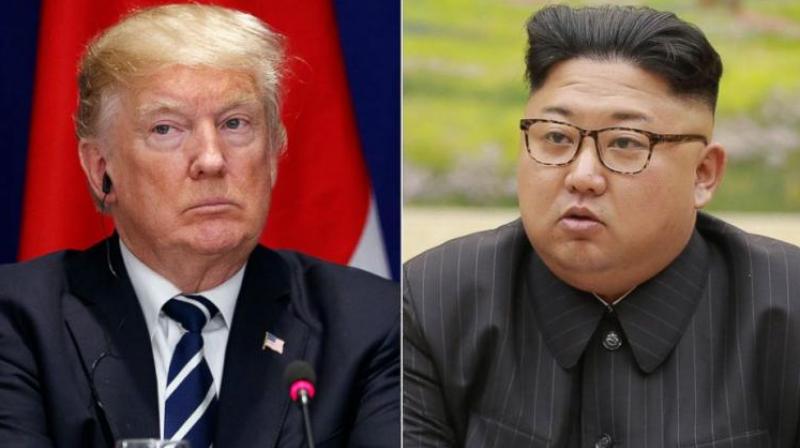Trump a bull in a China shop as America’s power begins to wane
Pakistan may forage some significance in China’s reception of foreign minister Shah Mehmood Qureshi in Beijing earlier this month.

American President Donald Trump is a bull in search of a china shop — daily. Take the denuclearisation of North Korea. Abortive rejections by Kim Jong-un in Hanoi and later in Singapore did little to thwart President Trump from his mission to convert Kim Jong-un to nuclear pacifism. Basking in the publicity of dramatic handshakes across the North and South Korea border, Mr Trump neglected to read the North Korean press the next morning. It regarded the bonhomie between the two leaders as appetising as a flat soufflé.
In the Middle East, the failure of his son-in-law Jared Kushner to broker peace between the Israelis and the Palestinians has been pushed to the bottom of Mr Trump’s to-do list.
In Afghanistan, Mr Trump would dearly like to withdraw before his re-election next year, preferably without any more body bags and without loss of face. His desperation has made him clutch at the fragile straw of Pakistan’s influence over the Afghan Taliban. His secretary of state Mike Pompeo privately advised Pakistan that the road to Washington now lies through Kabul. Mr Pompeo’s unequivocal message could not have been clearer: “Deliver us from the Taliban, and we will forgive you your trespasses.”
Over Kashmir, Mr Trump’s gratuitous offer to Pakistan Prime Minister Imran Khan during their meeting in the Oval Office (and repeated thereafter) to mediate between India and Pakistan over Kashmir was suffocated by India’s external affairs ministry, and then buried soon enough by Prime Minister Narendra Modi’s actions in Jammu and Kashmir and Ladakh. Mr Trump left it to his spokesperson to announce that the US regarded the abrogation of Article 370 as India’s “internal matter”.
What did Trump hope to achieve as a mediator? Reunite the severed parts of Jammu and Kashmir, as he had done North and South Korea? Fly to Lahore and then cross the white line border at Wagah for a handshake with Prime Minister Modi, with or without Imran Khan? Or coordinate with the Chinese and support the UN Security Council in the revivification of still breathing UN resolutions?
He did nothing. The reason is obvious. Under President Trump, the influence and reach of the US has diminished. Soon, with the aid of British PM Boris Johnson, it will end at the white cliffs of Dover.
No single crisis since 1971 has brought into sharper relief the distance between the US as a continent and the continent that is China than this latest faceoff over Kashmir. In 1971, Henry Kissinger, during his seminal visit to Beijing in July 1971, assured Premier Zhou Enlai that the US was “trying very hard” to prevent a war between India and Pakistan over East Pakistan (later Bangladesh). Zhou Enlai replied with Mandarin sagacity that the US “might not be able to do much because we (the United States) were 10,000 miles away”.
Pakistan may forage some significance in China’s reception of foreign minister Shah Mehmood Qureshi in Beijing earlier this month. Chinese foreign minister Wang Yi assured Mr Qureshi that the Kashmir issue “should be properly and peacefully resolved based on the UN Charter, relevant UN Security Council resolutions and bilateral agreement”. He added that China would “continue to support Pakistan in safeguarding its legitimate rights and interests and uphold justice for Pakistan in the international arena”. Such a ringing endorsement did not go unpunished. Hard on the Hermes heels of the Pakistani foreign minister, India’s external affairs minister S. Jaishankar visited Bejing to meet Wang Yi. He reiterated that the abrogation of Article 370 was India’s “internal matter”, a cutting echo of China’s contention that its invasion of Tibet in 1950 and its subsequent conversion into an Autonomous Region was China’s “internal matter”.
Significantly, Wang Yi expressed the hope that, like China, India would also “play a constructive role for regional peace and stability”. Mr Jaishankar assured China that India had no territorial ambitions, and it honours the 3,488-km long Line of Actual Control between them. (Has India in effect condoned China’s possession of Aksai-Chin?) The Chinese however “objected to the formation of Ladakh as a Union territory by India, saying it undermined its territorial sovereignty”. The germ of a Sino-Indian debate has been born, notwithstanding their intention not to let differences fester into disputes.
By arrangement with Dawn

